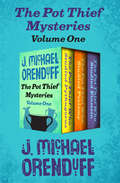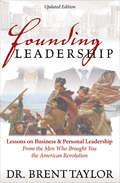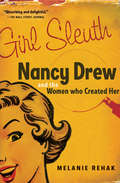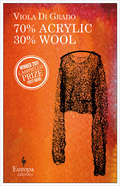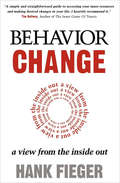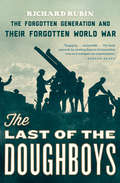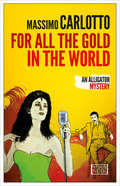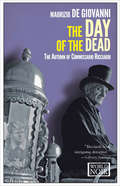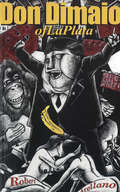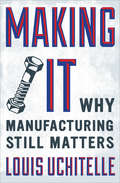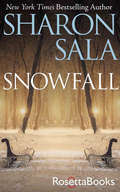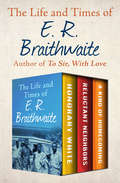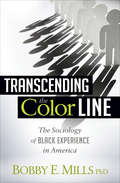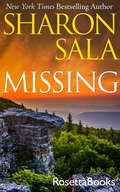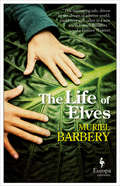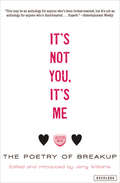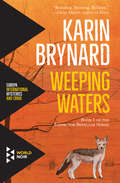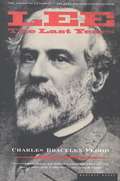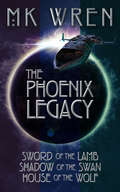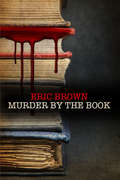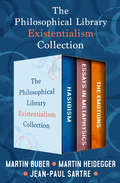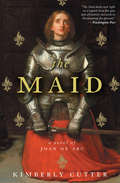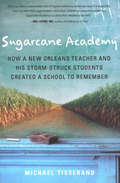- Table View
- List View
Wilde's Women: How Oscar Wilde Was Shaped by the Women He Knew
by Eleanor Fitzsimons&“A lively debut biography of the flamboyant Irish writer . . . focusing on the women who loved and supported him&” (Kirkus Reviews). In this essential work, Eleanor Fitzsimons reframes Oscar Wilde&’s story and his legacy through the women in his life, including such scintillating figures as Florence Balcombe; actress Lillie Langtry; and his tragic and witty niece, Dolly, who, like Wilde, loved fast cars, cocaine, and foreign women. Fresh, revealing, and entertaining, full of fascinating detail and anecdotes, Wilde&’s Women relates the untold story of how a beloved writer and libertine played a vitally sympathetic role on behalf of many women, and how they supported him in the midst of a Victorian society in the process of changing forever. &“Fitzsimons reminds us of the many writers, actresses, political activists, professional beauties and aristocratic ladies who helped shape the life and legend of the era&’s greatest wit, esthete and sexual martyr . . . provide[s] a potted biography of the multitalented writer and gay icon . . . highly enjoyable.&” —The Washington Post &“Fitzsimons brilliantly calls attention to the progressive ideas and beliefs which drew the most daring and interesting women of the time to his side. The depth and painstaking care of Fitzsimons&’ research is a fitting tribute to Wilde&’s fascinating life and exquisite writing—and really, what better compliment is there than that?&” —High Voltage
No Time to Lose: How I Lost 185 Pounds and Saved My Life
by Debbie LazinskyA certified personal trainer whose amazing weight loss was featured in People magazine shares her secrets! Debbie Lazinsky once weighed over three hundred pounds. Then she transformed her body and her health so successfully that she was profiled in People. Now, Debbie is a certified health coach and trainer who dedicates herself to helping others overcome their own obstacles—safely and sensibly. No one wants to be on a diet—and it&’s just as well, because diets don&’t work. Learning the essentials is the key to successful, natural weight loss, and Debbie teaches anyone struggling how to achieve and maintain a healthy weight without ever dieting again. How did she lose 185 pounds and keep it off? In this book, she tells her story—and explains how foods that are currently being eaten are contributing to excess weight and how to settle into a pattern of steady weight loss. If you&’re sick and tired of all the false promises and gimmicks, No Time to Lose can help with a proven system that&’s simple and efficient and can be tailored for each individual. Discover the truth about what&’s been getting in many people&’s way of having a body they enjoy and being at a weight that works for them!
The Pot Thief Mysteries Volume One: The Pot Thief Who Studied Pythagoras, The Pot Thief Who Studied Ptolemy, and The Pot Thief Who Studied Einstein (The Pot Thief Mysteries #3)
by J. Michael OrenduffAn Albuquerque pottery dealer looking for artifacts finds murder and intrigue in this &“smartly funny&” series (Anne Hillerman, author of Spider Woman&’s Daughter). A dealer in ancient Native American pottery, Hubert Schuze has spent years searching the public lands of New Mexico for artwork that would otherwise remain buried. According to the US government, he&’s a thief, but Hubie knows the real crime would be to allow age-old traditions to die. He honors prehistoric craftspeople by resurrecting their handiwork, and nothing—not even foul play—will stop him in these three installments of the Lefty Award–winning mystery series. The Pot Thief Who Studied Pythagoras: Hubie accepts a $25,000 offer to lift a rare pot from a local museum but changes his mind when he discovers how tightly the exhibit is being guarded. When the pot goes missing anyway, Hubie&’s sent on the hunt for the real thief—and on the run from a killer. The Pot Thief Who Studied Ptolemy: Hubie goes on a mission to recover stolen relics from a high-rise apartment building. Unfortunately, his perfect plan falls apart when he&’s arrested for murder. That&’s what happens when you get caught with blood on your hands and a dead body in the room. Now, Hubie must stay one step ahead of the law as he pursues a beautiful mystery woman in this fast-paced thriller that &“hook[s] the reader from the get-go&” (Albuquerque Journal). The Pot Thief Who Studied Einstein: After Hubie appraises a collection of Anasazi pots for an eccentric, reclusive collector, his $2,500 payment disappears. He suspects the man ripped him off, but soon stumbles into a bigger crime when the collector is murdered. Determined not to end up in handcuffs, Hubie sets out to solve the mystery—and finds himself pulled deeper and deeper into the dead man&’s shadowy, dangerous life.
Founding Leadership: Lessons on Business & Personal Leadership From the Men Who Brought You the American Revolution
by Dr. Brent TaylorWhat would Washington (or Jefferson or Hamilton) do? Practical leadership lessons from the eighteenth century that you can use today. To many, the leaders of the American Revolution are distant men of myth—stoic, heroic, and unknowable. People take for granted that these men were brilliant, but rarely ask why. What distinguished them from their fellow citizens, both then and now? What can they teach about leadership, and about realizing both career and personal goals? Founding Leadership reveals the human side of these &“marble men,&” examining the words, deeds, and personal qualities that allowed Washington, Jefferson, Adams, Hamilton, and others to achieve their utopian aims. Historian Brent Taylor demonstrates that effective leadership requires more than perseverance and a laundry list of how-to steps. It requires leaders to conceive visions greater than themselves, then communicate those visions in ways that inspire, persuade, and motivate others. In examining historical episodes both famous and obscure, Taylor uncovers the light and dark sides of power, including the motivations behind Benedict Arnold&’s infamous betrayal. Through these fascinating studies, you can become more attuned to America&’s past and—most importantly—to your own leadership potential.
Girl Sleuth: Nancy Drew and the Women Who Created Her (Thorndike Nonfiction Ser.)
by Melanie RehakThe true story behind the iconic fictional detective is &“a fascinating chapter in the history of publishing&” (The Seattle Times). An Edgar Award Winner for Best Biography and a Chicago Tribune Best Book of the Year The plucky &“titian-haired&” sleuth solved her first mystery in 1930—and eighty million books later, Nancy Drew has survived the Depression, World War II, and the sixties (when she was taken up with a vengeance by women&’s libbers) to enter the pantheon of American culture. As beloved by girls today as she was by their grandmothers, Nancy Drew has both inspired and reflected the changes in her readers&’ lives. Here, in a narrative with all the page-turning pace of Nancy&’s adventures, Melanie Rehak solves an enduring literary mystery: Who created Nancy Drew? And how did she go from pulp heroine to icon? The brainchild of children&’s book mogul Edward Stratemeyer, Nancy was brought to life by two women: Mildred Wirt Benson, a pioneering journalist from Iowa, and Harriet Stratemeyer Adams, a well-bred wife and mother who took over her father&’s business empire as CEO. In this century-spanning, &“absorbing and delightful&” story, the author traces their roles—and Nancy&’s—in forging the modern American woman (The Wall Street Journal). &“It&’s truly fun to see behind the scenes of the girl sleuth&’s creation.&” —Publishers Weekly &“As much a social history of the times as a book about the popular series . . . Those who followed the many adventures of Nancy Drew and her friends will be fascinated with the behind-the-scenes stories of just who Carolyn Keene really was.&” —School Library Journal &“Sheds light on perhaps the most successful writing franchise of all time and also the cultural and historic changes through which it passed. Grab your flashlights, girls. The mystery of Carolyn Keene is about to begin.&” —Karen Joy Fowler
70% Acrylic 30% Wool
by Viola Di GradoA Campiello Award–winning novel &“Di Grado&’s black comedy, pungent metaphors and controlled ambiguity announce the arrival of a considerable talent&” (The Times Literary Supplement). Camelia is a young Italian woman who lives with her mother in Leeds, a city where it is always December and winter has been underway for such a long time that nobody is old enough to have seen what came before. She&’s dropped out of university and translates instruction manuals for an Italian washing machine manufacturer. Her mother, Livia Mega, once a renowned flautist, spends her days inside taking photographs of holes she finds in the house. Camelia and her mother communicate in a language of their own invention, in which words play no part. The lives of these two women have been undone by a calamity in their recent past, and there seems little or no possibility of ever finding their way back to a normal life. But one day Camelia meets Wen, a local shop owner. To win Camelia&’s affections, Wen begins teaching her Chinese ideograms. Through this new language of signs and subtle variations, Camelia learns to see the world anew and, in it, a chance for renewal. &“70% Acrylic 30% Wool is incredibly sculpted and tight, with carefully woven images and language that repeat in chiseled arcs, creating a rhythmic narrative that radiates with Di Grado&’s mastery of craft.&” —Music & Literature Magazine &“This offbeat novel is rather more sophisticated than it first appears . . . a subtle meditation on language and its failures.&” —Financial Times &“Written in lavish language and with beautiful metaphors.&” —The Star Tribune
Behavior Change: A View from the Inside Out
by Hank FiegerHow our beliefs affect our behaviors—and what we can do to replace bad habits with productive new patterns. Most of us wish to modify, improve, and change our behavior in some way—perhaps making healthier decisions, building better relationships, or handling stress more effectively. Embracing the belief that effective behavior resides within each individual, Behavior Change does not tell readers what they need to do differently—but rather illuminates the process of changing behavior based on four fundamental principles: * Awareness and acceptance are the first steps to creating lasting change * Understanding what holds habitual behavior in place is key to doing things differently * Improvement means making a new choice and replacing old behavior patterns with more effective and productive ones * Reinforcement emphasizes that practice with feedback brings improvement For business leaders, teachers, therapists, coaches, or anyone who wants to make positive changes to their own behavior, this guide can start you on your way.
The Last of the Doughboys: The Forgotten Generation and Their Forgotten World War
by Richard Rubin&“Before the Greatest Generation, there was the Forgotten Generation of World War I . . . wonderfully engaging&” (Kirkus Reviews, starred review). &“Richard Rubin has done something that will never be possible for anyone to do again. His interviews with the last American World War I veterans—who have all since died—bring to vivid life a cataclysm that changed our world forever but that remains curiously forgotten here.&” —Adam Hochschild, author of To End All Wars: A Story of Loyalty and Rebellion, 1914–1918 In 2003, eighty-five years after the end of World War I, Richard Rubin set out to see if he could still find and talk to someone who had actually served in the American Expeditionary Forces during that colossal conflict. Ultimately he found dozens, aged 101 to 113, from Cape Cod to Carson City, who shared with him at the last possible moment their stories of America&’s Great War. Nineteenth-century men and women living in the twenty-first century, they were self-reliant, humble, and stoic, never complaining, but still marveling at the immensity of the war they helped win, and the complexity of the world they helped create. Though America has largely forgotten their war, you will never forget them, or their stories. A decade in the making, The Last of the Doughboys is the most sweeping look at America&’s First World War in a generation, a glorious reminder of the tremendously important role America played in the &“war to end all wars,&” as well as a moving meditation on character, grace, aging, and memory. &“An outstanding and fascinating book. By tracking down the last surviving veterans of the First World War and interviewing them with sympathy and skill, Richard Rubin has produced a first-rate work of reporting.&” —Ian Frazier, author of Travels in Siberia &“I cannot remember a book about that huge and terrible war that I have enjoyed reading more in many years.&” —Michael Korda, The Daily Beast
For All the Gold in the World: An Alligator Mystery (The Alligator Mysteries #5)
by Massimo Carlotto“The best living Italian crime writer” immerses readers in a gritty noir novel featuring PI Marco “the Alligator” Buratti (Il Manifesto).This novel, by one of Italy’s bestselling crime novelists, provides a unique perspective on the criminal and social dynamics that dominate contemporary Italy.One of the many robberies that plague Northeast Italy goes wrong and ends with a brutal murder. The police investigation turns up nothing. Two years later, Marco Buratti, alias “the Alligator,” is asked to look into the crime and find out who was responsible.Buratti’s employer is young, the youngest client he has ever had; he is only twelve years old and is the son of one of the victims. The Alligator realizes right from the start that the truth is cloaked, twisted, shocking. Together with his associates, Beniamino Rossini and Max the Memory, he finds himself mixed up in a story involving contraband gold and blood vendettas between criminal gangs.“Finishing an Alligator mystery is like waking up after an all-night bender with your best friends. . . . You’re not 100 percent sure what happened. But you know you had a good time.” —Cedar Rapids Gazette“Melancholy-tinged, Carlotto’s novel is quite nicely turned and solid entertainment.” —The Complete Review
The Day of the Dead: The Autumn of Comissario Ricciardi (The Commissario Ricciardi Mysteries #4)
by Maurizio de GiovanniThe fourth Commissario Ricciardi historical mystery—following Everyone in Their Place—is &“a superb novel for fans of Italian noir&” (Library Journal, starred review). Commissario Ricciardi has visions. He sees and hears the final moments in the lives of those who have suffered violent deaths. It may be a talent or it may be a curse, but it has helped him become one of the most successful homicide detectives in the Naples police force. It&’s a rainy autumn in 1930s Naples as its inhabitants celebrate the week of the dead. Ricciardi&’s instincts tell him that the death of a street urchin is actually murder, but investigating the homicide is not going to be easy. The authorities want to avoid any sign that things are not as they ought to be in Naples, for they are preparing for the state visit of Benito Mussolini. Ricciardi will have to conduct his investigation hidden from the eyes of his superiors. What&’s worse, his sixth sense is no help to him this time; the scene of the crime is silent, still, not a word or a sign, or even a scream from the dead. Has his unwelcome gift finally faded? Or is something more sinister at work? &“De Giovanni&’s slashing wit cuts deeply into his cameo portraits of the high and mighty, even as his elegant style ennobles the wretched lives he views with such compassion.&” —The New York Times Book Review &“De Giovanni is a masterful plotter and sub-plotter; it&’s a joy to ease into his complete command of his craft . . . These are murder mysteries raised to a brilliant level.&” —Open Letters Monthly
Don Dimaio of La Plata (Akashic Urban Surreal Series)
by Robert ArellanoA tale of political downfall from &“an exceptional creative talent perfectly in tune with his own rapidly changing times&” (Robert Coover, bestselling author of The Public Burning). In 2002, real-life mayor of Providence, Rhode Island, Vincent &“Buddy&” Cianci was convicted of extortion. This is the story of Don &“Pally&” Dimaio, mayor of La Plata, as his corrupt administration spirals out of control. From the award-winning author of Curse the Names and Fast Eddie, King of the Bees, this is a wildly inventive satirical novel that toggles between adaptations of the language of Cervantes and a narrative of an American mayor&’s quixotic decline.
Making It: Why Manufacturing Still Matters
by Louis UchitelleA veteran New York Times economics correspondent reports from factories nationwide to illustrate the continuing importance of industry for our country. In the 1950s, manufacturing generated nearly 30 percent of US income. But over the decades, that share has gradually declined to less than 12 percent, at the same time that real estate, finance, and Wall Street trading have grown. While manufacturing&’s share of the US economy shrinks, it expands in countries such as China and Germany that have a strong industrial policy. Meanwhile Americans are only vaguely aware of the many consequences—including a decline in their self-image as inventive, practical, and effective people—of the loss of that industrial base. Reporting from places where things were and sometimes still are &“Made in the USA&”—New York, New York; Boston; Detroit; Fort Wayne and Indianapolis, Indiana; Los Angeles; Midland, Michigan; Milwaukee; Philadelphia; St. Louis; and Washington, DC—Louis Uchitelle argues that the government has a crucial role to play in making domestic manufacturing possible. If the Department of Defense subsidizes the manufacture of weapons and war materiel, why shouldn&’t the government support the industrial base that powers our economy? Combining brilliant reportage with an incisive economic and political argument, Making It tells the overlooked story of manufacturing&’s still-vital role in the United States and how it might expand. &“Compelling . . . demonstrates the intimate connection between good work and national well-being . . . economics with a heart.&” —Mike Rose, author of The Mind at Work
Snowfall
by Sharon SalaAn ex-cop protects a beautiful mystery author from a killer fan in this romantic suspense novel by the New York Times–bestselling author of Remember Me. As an heiress to a broadcasting fortune, successful mystery author Caitlin Bennett is used to people saying she bought her way into fame. But the taunts become terrifying when she starts receiving menacing letters from a deranged fan. Meanwhile, the news that a woman has been found murdered—her body lightly covered by the New York snowfall—only adds to the chill Caitlin feels in her elegant Manhattan apartment. Though she&’s not thrilled by the idea, Caitlin agrees to hire her good friend&’s stepbrother, ex-cop Connor &“Mac&” McKee, for protection. When two more women bearing a striking resemblance to Caitlin show up dead under the snow, Mac realizes the stalker is making his way to her, his final victim. Now Caitlin and Mac will have to get very close if Caitlin wants to stay alive.
The Life and Times of E. R. Braithwaite: Honorary White, Reluctant Neighbors, and A Kind of Homecoming
by E. R. BraithwaiteThree compelling memoirs from the author of the &“moving and inspiring&” international bestseller, To Sir, With Love (The New York Times). E. R. Braithwaite wrote powerfully and poignantly about racial discrimination—both in his most famous novel, based on his own experience teaching in London&’s East End, To Sir, With Love, which was made into a 1967 film starring Sidney Poitier—and in his candid nonfiction memoirs, three of which are collected here. Honorary White: In 1973, after the South African government lifted a long-standing ban on To Sir, With Love, Braithwaite was granted the official status of &“Honorary White&” for the length of his six-week visit. As such, he was afforded some of the freedoms that South Africa&’s black population was denied, yet was nonetheless still considered inferior by the white establishment. In this &“vivid&” memoir, Braithwaite honestly presents his struggle with what he witnesses in South Africa under apartheid (The New York Times). Reluctant Neighbors: Sparked by the experience of sharing a train commute with a bigoted white neighbor, Braithwaite recounts a personal history of remarkable accomplishments in the face of racial intolerance and oppression, offering an unforgettable story of one man&’s continuous struggle against injustice and his unwavering dedication to the pursuit of human dignity. A Kind of Homecoming: In the early 1960s, the British Guianese author embarked on a pilgrimage to the West African countries of Ghana, Guinea, and Liberia, and across Sierra Leone just as the emerging nation was preparing to declare its independence. Braithwaite discovered a world vastly different from the staid, firmly established British society in which he had spent most of his life. The sights, sounds, and smells of West Africa vividly reawakened lost memories from his childhood. Entering the intimate circles of the local intelligentsia, he was able to view these newly evolving African societies from the inside, struck by their mixtures of passion and naïveté, their political obsessions and technological indifference. He discovered a world that fascinated, excited, and, in some cases, deeply troubled him—and in the process he discovered himself.
Transcending the Color Line: The Sociology of Black Experience in America
by Bobby E. MillsA moral and philosophical approach to the stubborn problem of racism. Transcending the Color Line by sociologist and professor Bobby E. Mills, PhD, represents a philosophical attempt to make sense out of American black collective experience. These essays do not reflect traditional sociological perspectives and methodological considerations. Instead, the query is: How do we live? And more importantly, what are we willing to sacrifice in order to live the way we say we want to live? In other words, this collection digs deeper into the moral and spiritual issues that lie beneath the more obvious sociological ones. Invariably the search for moral understanding and spiritual meaning is neither easy nor popular. Yet it is the abstract, empirical (amoral and apolitical) character of traditional sociology that has all but rendered it irrelevant to the resolution of contemporary social ills. The biased theoretical assumptions of the scientific method (i.e., abstract empiricism) are the social basis for the collective bias otherwise known as the illusion of value neutrality. This collective cultural bias is the social foundation for institutional racism, sexism, theological dogmatism (i.e., denominationalism), and above all, authoritarianism. Indeed, every &“ism&” is a schism, and schisms divide. Our either/or logic fosters cultural extremism rather than a universal perspective on humanity. By digging deep to the true source of our sociological and leadership issues, these essays not only call black and white individuals accountable to the dysfunction present in our shared social experience, but inspire all people to transcend the color line and become part of the solution.
Missing (The\jigsaw Files Ser. #1)
by Sharon SalaA romantic suspense novel of a woman&’s fatal allure and a soldier&’s mission to protect her—from the New York Times–bestselling author of Dark Water Rising. Since her mother&’s death, Ally Monroe spends her days cooking, cleaning, and caring for her father and two middle-aged brothers. Holding on to her dreams is the only way she will survive this lonely life in the mountains of West Virginia. John Wesley Holden is a special-ops soldier stationed at Fort Benning, Georgia. Having served a horrific tour in Afghanistan, where he was captured as a prisoner of war, he now suffers from PTSD. His wife and son are his lifeline to finding happiness again. But when a suicide bomber attacks the base, killing his family, Wes loses his grip on reality. Feeling as if the enemy has followed him home, Wes walks away from his life, nearly catatonic. Then he meets Ally . . . and begins to find his way back to life. But something&’s not quite right in Blue Creek, West Virginia. Their neighbor is hiding a secret operation, and he&’ll stop at nothing to keep Wes and Ally out of it—and to take Ally for his own.
The Life of Elves (Life of the Elves #1)
by Muriel BarberyA &“beguiling fairy tale&” by the bestselling author of The Elegance of the Hedgehog (The New York Times). The villagers had never seen anything like it: dense white curtains of snow that instantly transformed the landscape. Not in autumn, not here in Burgundy. And on the same night a baby was discovered, dark-eyed little Maria, who would transform all their lives. Hundreds of miles away in the mountains of Abruzzo, another foundling, Clara, astonishes everyone with her extraordinary talent for piano playing. But her gifts go far beyond simple musicianship. As a time of great danger looms, though the girls know nothing of each other, it is the bond that unites them and others like them which will ultimately offer the only chance for good to prevail in the world. &“Vivid imagery and a thread of mystery draw readers into the timeless and ethereal world of these young girls with a destiny to fulfill.&” —Booklist &“The novel is essentially a parable about the power both of art, which abolishes the &‘border between earth and mind,&’ and of women.&” —The New Yorker &“Fans of both Barbery and fantasy from writers like Alice Hoffman and Sarah Addison Allen will be enchanted.&” —Library Journal
It's Not You, It's Me: The Poetry of Breakup
by Jerry Williams&“This may be an anthology for anyone who&’s been broken-hearted, but it&’s not an anthology for anyone who&’s faint-hearted . . . Superb&” (Entertainment Weekly). It&’s Not You, It&’s Me is a poetry anthology—at once amusing, angry, sweet, and bitter—that gives a fresh voice to the all-too-familiar experience of ending a relationship. Williams has compiled over ninety poems by contemporary writers including Denis Johnson and Kim Addonizio, as well as former poets laureate Robert Hass, Maxine Kumin, and Mark Strand, whose comforting and healing words dragged him out of his breakup-induced depression. We have all been through a breakup, but these poems have created an art out of heartbreak: sharing their wisdom on the pain of the flip side of romance, and poking fun at the mess we become at the mercy of love. &“This collection . . . gathers many of the poems that have helped Williams (a poet himself, with two books to his name) through his rooms of anguish over the years. Happily, they&’re pretty great.&” —The New York Times &“In It&’s Not You, It&’s Me: The Poetry of Breakup today&’s big contemporary poets make breaking up and even divorce sound painfully beautiful. You&’ll want to read with a box of tissues, a pint of chocolate ice cream and sappy love songs playing in the background.&” —Lemon Drop Literary
Weeping Waters: Book 1 Of The Inspector Beeslaar Series (The Inspector Beeslaar Series #1)
by Karin BrynardFirst in the series starring a South African police detective: “[A] picturesque backdrop, cast of authentic characters, and knotty story line” (Publishers Weekly).Shortlisted for the International Dagger Award and Winner of the University of Johannesburg Debut PrizeInsp. Albertus Markus Beeslaar is a traumatized cop who has abandoned tough city policing and a broken relationship in Johannesburg for a backwater post on the edge of the Kalahari Desert. But his dream of rural peace is soon shattered by the repeated attacks of a brutally efficient crime syndicate, as he struggles to train and connect with rookie local cops Ghaap and Pyl, who resent his brusqueness and his old-school ways.A beautiful and eccentric artist and her four-year-old adopted daughter are murdered on a local farm, and angry white farmers point to her enigmatic Bushman farm manager as a key suspect. Along with Ghaap and Pyl, Beeslaar is plunged into the intrigue and racial tensions of the community, and finds that violence knows no geographical or ethnic boundaries.Weeping Waters marks the beginning of a great new series with a striking setting, a strong ensemble of characters, and suspenseful storylines.“Brooding. Riveting. Brilliant.” —Deon Meyer, author of Blood Safari
Lee: The Last Years
by Charles Bracelen FloodA New York Times bestselling author&’s revealing account of General Robert E. Lee&’s life after Appomattox: &“An American classic" (Atlanta Journal-Constitution). After his surrender at Appomattox in 1865, Robert E. Lee, commanding general for the Confederate Army of Northern Virginia during the Civil War, lived only five more years. It was the great forgotten chapter of his remarkable life, during which Lee did more to bridge the divide between the North and the South than any other American. The South may have lost, but Lee taught them how to triumph in peace, and showed the entire country how to heal the wounds of war. Based on previously unseen documents, letters, family papers and exhaustive research into Lee&’s complex private life and public crusades, this is a portrait of a true icon of Reconstruction and quiet rebellion. From Lee&’s urging of Rebel soldiers to restore their citizenship, to his taking communion with a freedman, to his bold dance with a Yankee belle at a Southern ball, to his outspoken regret of his soldierly past, to withstanding charges of treason, Lee embodied his adage: &“True patriotism sometimes requires of men to act exactly contrary, at one period, to that which it does at another.&” Lee: The Last Years sheds a vital new light on war, politics, hero-worship, human rights, and Robert E. Lee&’s &“desire to do right.&”
The Phoenix Legacy: Sword of the Lamb, Shadow of the Swan, House of the Wolf (The Phoenix Legacy #3)
by M.K. WrenIn the thirty-third century, a vast empire teeters on the edge of destruction in the trilogy that &“has the sweep and power of Asimov&’s Foundation&” (Jean M. Auel, author of the Earth&’s Children series). A draconian ruling class. A slave rebellion threatening to boil over. A clandestine organization that has limitless power so long as it stays in the shadows. Concord is a hell of a place to die. In M.K. Wren&’s mesmerizing trilogy (Sword of the Lamb, Shadow of the Swan, House of the Wolf), a hero defies his birthright to achieve a greater purpose—leading the citizens of Concord to freedom. Doing so may cost the one-time Lord Alexand everything he holds dear, from his love to his own life. With a breathtaking sweep and unforgettable characters, M.K. Wren has penned a series perfect for readers of Divergent.
Murder by the Book (The Langham & Dupré Mysteries #1)
by Eric BrownWho is killing the crime writers of London? Find out in this &“consistently entertaining . . . crime debut from sci-fi veteran Brown&” (Kirkus Reviews). London, 1955. When crime writer Donald Langham&’s literary agent asks for his help in sorting out &“a delicate matter,&” little does Langham realize what he&’s getting himself into. For a nasty case of blackmail leads inexorably to murder as London&’s literary establishment is rocked by a series of increasingly bizarre deaths. With three members of the London Crime Writers&’ Association coming to sudden and violent ends, what at first appeared to be a series of suicides looks suspiciously like murder—and there seems to be something horribly familiar about the various methods of dispatch. With the help of his literary agent&’s assistant, the delectable Maria Dupré, Langham finds himself drawing on the skills of his fictional detective hero as he hunts a ruthless and fiendishly clever killer—a killer with old scores to settle. &“[A] well-paced first mystery. . . . Readers will hope a sequel is in the works.&” —Publishers Weekly
The Philosophical Library Existentialism Collection: Hasidism, Essays in Metaphysics, and The Emotions
by Martin Buber Martin Heidegger Jean-Paul SartreExplore the work of three great existential philosophers together in this collection. Hasidism: Zionist philosopher Martin Buber shares the results of forty years of study and introduces the philosophies of Hasidism to a Western audience. In this modern masterpiece, Buber interprets the ideas and motives that underlie the great Jewish religious movement of Hasidism and its creator, Baal Shem. Essays in Metaphysics: German philosopher Martin Heidegger presents two lectures in which he explores the nature of identity in the history of metaphysics. He offers illuminating insights on vital issues like technology, religion, language, history, and more. The Emotions: French philosopher Jean-Paul Sartre attempts to understand the role emotions play in the human psyche. Sartre analyzes fear, lust, anguish, and melancholy while asserting that human beings begin to develop emotional capabilities from a very early age, which helps them identify and understand the emotions&’ names and qualities later in life.
The Maid: A Novel of Joan of Arc
by Kimberly CutterA &“stunning&” novel of Joan of Arc, the fifteenth century teenage visionary who led an army and saved France (Publishers Weekly, starred review). The tumultuous Hundred Years&’ War rages on and France is under siege. English soldiers tear through the countryside destroying all who cross their paths, and Charles VII, the uncrowned king, has neither the strength nor the will to rally his army. Meanwhile, in the quiet of her parents&’ garden in Domrémy, a seventeen-year-old peasant girl has a mystical vision and hears a powerful voice speak her name: Jehanne. The story of Jehanne d&’Arc, who believed she had been chosen by God to lead an army and save her country, has captivated our imaginations for centuries. But the story of a girl whose sister was murdered by the English; who sought an escape from a violent father and a forced marriage; who taught herself to ride and fight; and who somehow found the courage to persuade thousands to follow her—is at once thrilling, surprising, and heartbreaking. &“Impressive . . . Cutter evokes the novel&’s medieval world with striking details.&” —The New York Times Book Review &“Cutter&’s portrait of &‘Jehanne&’ as a strange, gritty teenage tomboy and true believer is compelling.&” —USA Today &“Cutter strips away the romanticism in favor of a more complex portrayal that raises some provocative questions.&” —O, The Oprah Magazine
Sugarcane Academy: How a New Orleans Teacher and His Storm-Struck Students Created a School to Remember (Harvest Original Ser.)
by Michael TisserandThis inspiring story of a post-Katrina classroom &“reminds us all that heroes hold small hands on field trips, clean paint brushes, and sing morning songs&” (Phillip Done, author of 32 Third Graders and One Class Bunny: Life Lessons from Teaching). As floodwaters from Hurricane Katrina surged at their heels, those fleeing New Orleans had their minds more on safety than on whether their children would be missing school. But when a group of evacuee parents who settled in New Iberia, Louisiana, realized they would not be returning home quickly, they set about reconstructing their families&’ lives. And so they turned to beloved New Orleans schoolteacher Paul Reynaud, whose fierce determination and unwavering spirit transformed an abandoned office into a one-room schoolhouse. This is the story of Sugarcane Academy: twenty-five students, their devoted parents, an inspiring teacher, and the boundless power of learning. &“This wonderful memoir manages to do what a flood of news-reporting could not: see the tragedy of Katrina through the eyes of children. The story of the Sugarcane Academy, an improvised one-room school in a sugarcane parish in south Louisiana, will be one of the lasting books of our tragedy.&” —Andrei Codrescu, author of New Orleans, Mon Amour: Twenty Years of Writings from the City


